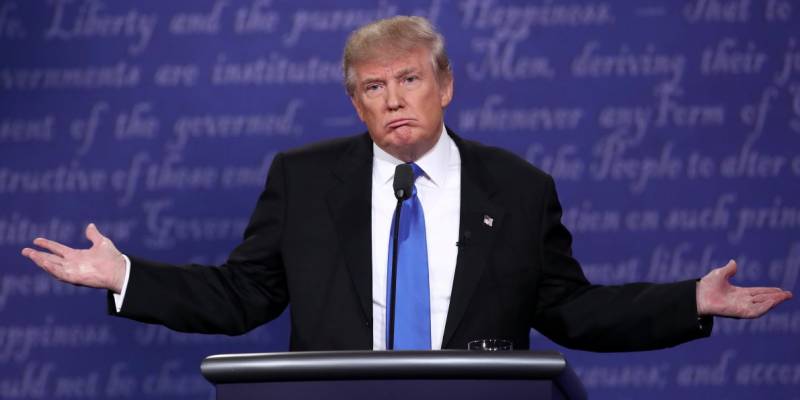President Donald Trump made an attention grabbing statement on 22 August while addressing the American nation in Washington. “Pakistan has also sheltered the same organizations that try every single day to kill our people. We have been paying Pakistan billions and billions of dollars, at the same time they are housing the very terrorists that we are fighting. But that will have to change, and that will change immediately. No partnership can survive a country’s harbouring of militants and terrorists who target U.S. service members and officials. It is time for Pakistan to demonstrate its commitment to civilization, order, and to peace”, he said.
American bashing of Pakistan never ends. They are partners in the war on terror, they are adversaries as well, and this continues over the past sixteen years. Historically, their path remained divergent in the 1950s, when Pakistan was warming up ties with the People’s Republic of China – an isolated Communist joint in American eyes. Pakistan never clogged until it recognised the PRC in 1971, which made US National Security Adviser Henry Kissinger visit Peking in July of the same year.
Pakistan’s policy had remained powerful and convincing. However, the US policy toward China proved fatal and the good-will of Pakistan was needed to get the country recognised. The US abandoned Pakistan after the Soviet exit in Afghanistan by 1988. Pakistan continued exerting its influence in Afghanistan throughout the 1990s and engineered its favourites – Taliban.
The US reverted to Afghanistan after it suffered terrorist attacks on 9 September 2001. The US retuned with its full might but was trapped in occupying Afghanistan. Washington found Islamabad key to any successful execution of its policy in Afghanistan. The US, however, never fully trusted Pakistan. The US wanted Pakistan on their side of the game without any specific role given to the country inside Afghanistan. And, any US failures in Afghanistan were perceived to be because of Pakistan’s intervention.
The US changed its policy toward China after 21 years and made use of the honest role of Pakistan - in Afghanistan it is not yet ready to listen to Pakistan even after 37 years. If with the goodwill of Pakistan, peace could be achieved in Afghanistan, the price would not be so expensive. It is basically a trust deficit between Washington and Islamabad and more specifically between the Pentagon and GHQ.
America must acknowledge that the GHQ was created by British authorities in undivided India to follow a forward policy in Afghanistan. Pakistan inherited that geo-strategic posture and its influence in Afghanistan is thus natural. The Pentagon authorities and Congress lawmakers want to change this policy and bring in India by assigning a greater role to it without understanding that the situation in Kabul cannot be monitored remote-control from New Delhi, but it can be from Rawalpindi as the Northern Command Headquarters was established there in 1895.
The Northern Command was reformed again as the North Western Army in April 1942 to guard the North West Frontier Province (NWFP). It controlled the Kohat, Peshawar, Rawalpindi, Balochistan and Waziristan areas. To control the situation on western frontiers was the duty of the Northern Command.
American policymakers are trying to change the winds from west to east. Here lies the fault in Trump’s policy on Afghanistan; bringing India on the limelight. This push would only create additional predicaments in Afghanistan no matter how close the elites in Kabuland New Delhi will be. The role of Islamabad would be central but Washington is denying the truth.
The Chief of Army Staff General Qamar Javed Bajwa told US Ambassador David Hale on 23 August that Pakistan was actively working for peace in Afghanistan.”We have done a lot...and shall keep on doing our best, not to appease anyone but in line with our national interest and national policy.”
Trump is just talking irresponsibly on Pakistan, and has made pejorative remarks as well. Pakistan paid the heaviest price for peace in Afghanistan; more than any other nation - over 70,000 people died. The financial costs are even higher. To accuse Pakistan of “harbouring militants and terrorists” is highly abhorrent. Ghani sitting in Kabul, Modi in New Delhi, and Trump in Washington might cook up an alliance against Pakistan but that would not bring peace in Afghanistan for sure. This alliance would not be Afghan-led for one. In retaliation, these comments could backfire. Trump’s statement could evoke Pakistan, China, and Russia to make a similar policy in Afghanistan. Trump will certainly not be ready for another great-game.
The United States cannot get Pakistan out of its hair easily. Even the cancellation of the status of the non-NATO ally for Pakistan could damage US interests in Afghanistan. The US fuel for war games in Afghanistan comes from Karachi in containers, and that may dry up if the government takes action on Trump’s remarks. Karachi is the only port facility for US cargo ships handling goods for Afghanistan and for Afghan transit-trade. How will India provide such facilities needed to support the war in Afghanistan? Perhaps, Trump’s advisers’ are poor in the geography of South Asia and Afghanistan.






